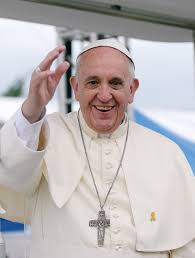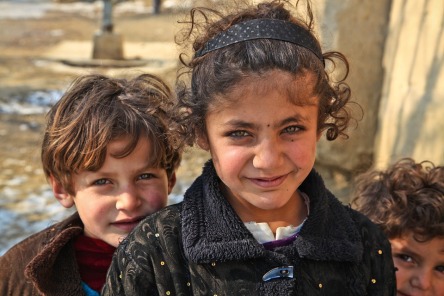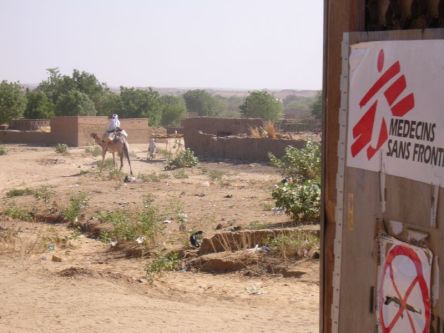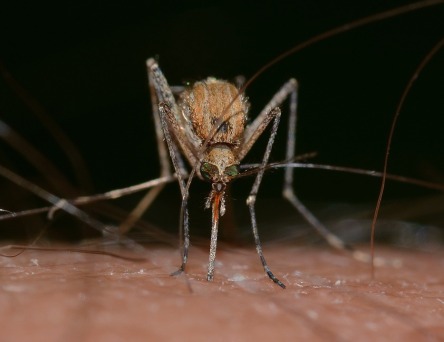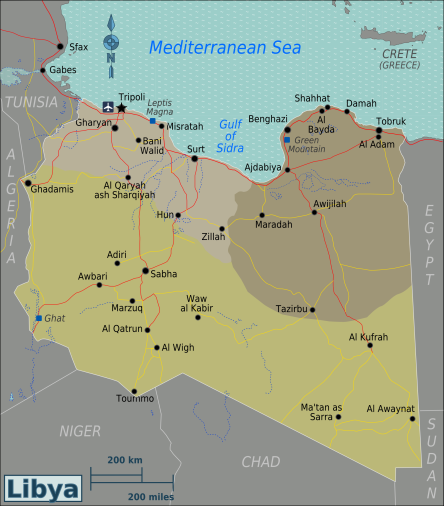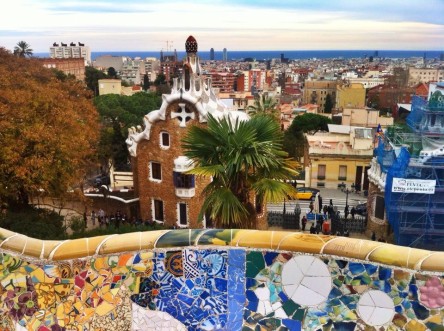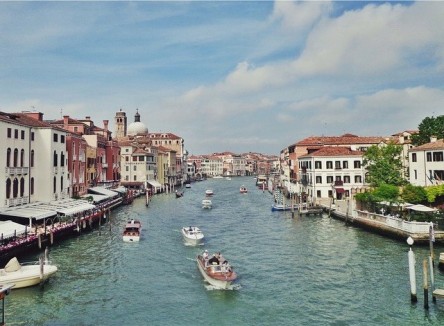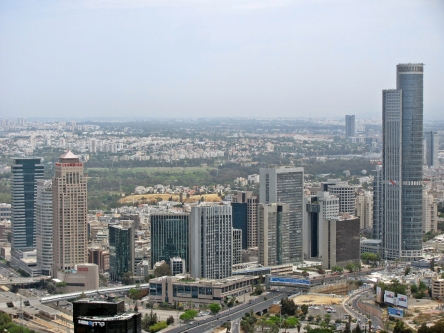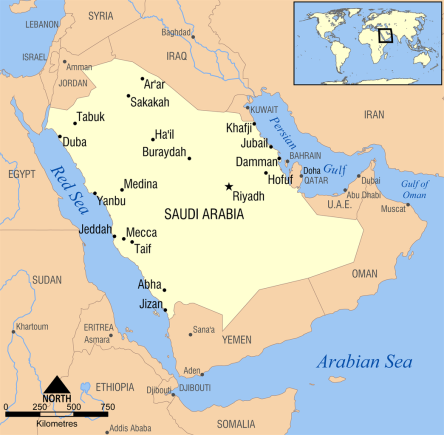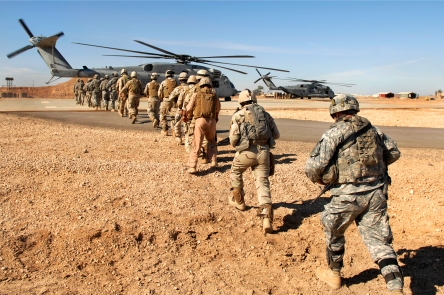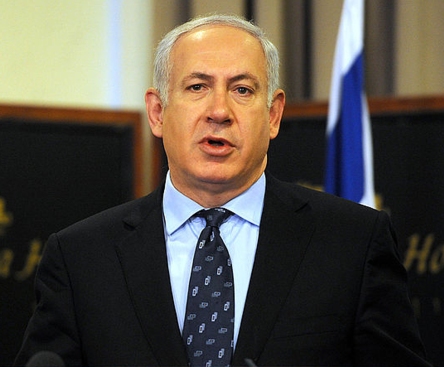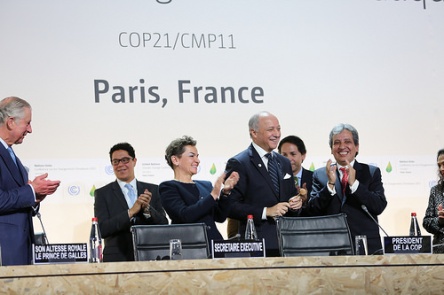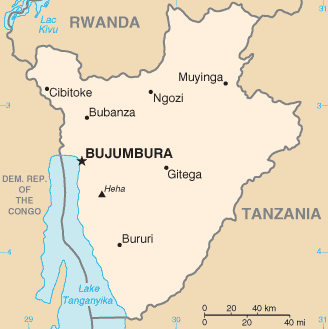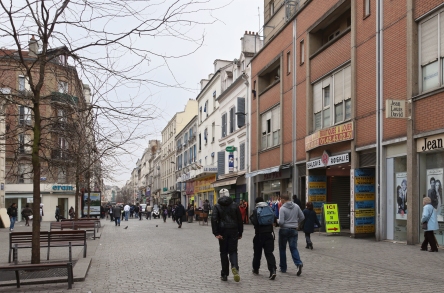
By Andrew Withers
Photos by Jeremy Johnson
Tucked away in a quiet, wooded subdivision of Columbia is Thomas Wei Gao’s home. Unassuming at first, it sits on a gentle hill overlooking a forested gully. The beauty of the surroundings are enough to give pause; late afternoon light filtering through the stripped branches, the odd bird chirping, the rustle of a nearly nonexistent breeze through a bed of leaves. But the beauty of what’s outside the house is easily matched by what’s inside.
Gao is a painter who works in the traditional Chinese ink wash style of painting, among other techniques. But it wasn’t always that way.
A journalist by trade, Gao spent 10 years covering the auto industry and economics as a reporter in Beijing. Because of the nature of his work, he often traveled throughout Asia, Europe and North America.
“If you are a journalist, you have to go to many places to interview people and see something new,” Gao says. “Sometimes I traveled to Paris 10 times a year. We’d have three days for work and three days for paradise. The others choose shopping; I spend all my time in museums.”
In April 2013, one of his trips took him to New York for a show put on by British automaker Jaguar. In his free time between events, he visited the Museum of Modern Art. Moved by the artwork, Gao purchased a set of painting materials when he got back to Beijing.
Development of his style
From there, his painting took off.
“I messed up a lot in the beginning,” Gao says. “But I taught myself. Jimmy Page is one of my biggest influences. He didn’t even know how to read music (at first).”
From the start, Gao’s career as a journalist influenced his painting. Incorporating lessons from his travels and reporting, he found he was able to apply the same principles of his writing to his art.
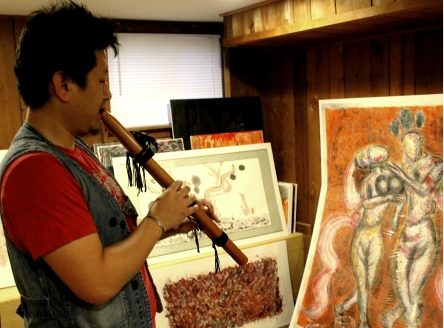
Thomas Wei Gao says he often plays the flute while he’s waiting for his paintings to dry.
“‘Journalist’ is a very good job to start with in your career because you can discover things,” he says. “You can know society; you can know the whole system. In other careers, you cannot get the whole picture. Sometimes, mistakes and failures are the best thing for you, the best thing to succeed.”
Gao compares his artistic process to the way he lays out and writes a story.
“Writing an article is the same thing as a painting,” he says.” You organize different areas together and make them look good. I think the very first painter was a journalist. 10,000 years ago, in the cave, that’s somebody trying to send a message.”
His creative process
Gao’s style is influenced by many different facets of art. He cites Tang Dynasty art from China as his biggest influence, as well as painters such as Edvard Munch and Francis Bacon. But he’s careful to maintain that he doesn’t consider himself a subscriber to any individual style.
“You can’t put Munch in a category of one style,” he says. “I don’t have a cage. I can go anywhere I want — total freedom.”
Gao paints in the fresco style, a technique in which ink is applied to a surface and is allowed to diffuse by means of water through the medium, which, in Gao’s case, is paper. The resulting bleeding effect is the essence of traditional Chinese ink wash painting. Layer upon layer of ink is added, with periodic washes in order to fade the painting out in certain areas.
“I flood it with water to wash the ink out,” he says. “I’m trying to get rid of the paper so that the painting shows up.”
Special brushes, calligraphic ink and a unique type of bamboo paper from China are among the tools Gao uses. He also works with oils and acrylic.
But the creative process is in full swing long before the brush hits the paper.
“I have to think about (a painting) for a long time before I begin and make a plan,” he says. “ I learned a sentence that’s really useful here. ZZ Top, on his first album: ‘It’s all in your head.’”
Once Gao has a mental plan, it can take him weeks or months to finish a painting. It might take several hours for one layer of a piece to dry before he can continue onto the next one. Gao often uses these breaks to collect his thoughts.
“Sometimes, when I finish one step, I come outside, have a cigarette and enjoy the air,” he says.
Other times, Gao plays the flute as his paintings dry. He can play the flute and the guitar, and he says that his music and artwork often complement one another.
The subjects of Gao’s paintings range, but he typically works with religious themes. Buddhist elements are often featured in his art, but influences from other major religions are present as well. The lotus flower, hands and Buddha are all typical subjects for Gao. He does not consider himself an adherent of Buddhism, however.
“I want to get over the boundary of religion,” he says.
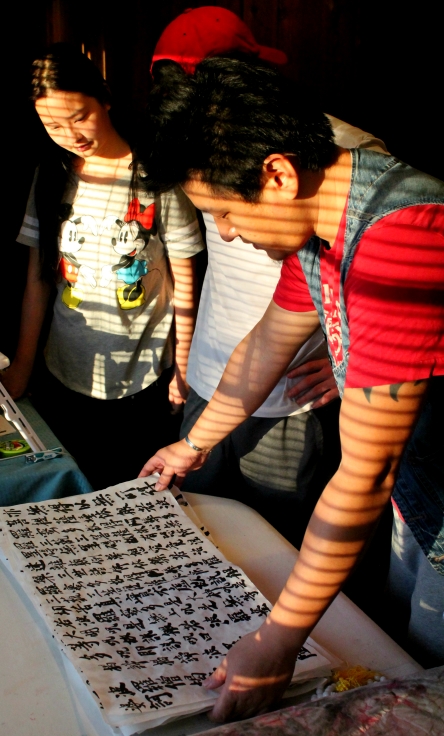
Thomas Wei Gao says he often uses the traditional Chinese style of ink wash painting. Behind one of his paintings, he inscribed the Heart Sutra, a Buddhist scripture.
Gao’s style and subject matter are exemplified in a series of paintings he created called the Nirvana Series. In one painting, called No. 1, a set of limbs are shown dying, leaving an ocean of suffering behind. In another, No. 3, a river is shown with falling water, trees and rocks. Yet another, No. 11, shows a hand engulfed in flames, making a Buddhist gesture. These paintings, he says, illustrate the attainment of Nirvana, a Buddhist enlightenment achieved after all desire, hatred and delusion are removed from the mind.
Behind one of his paintings, Gao inscribed the Heart Sutra, a short Buddhist scripture involving techniques to help with liberation from life’s suffering.
“Just like the (crucifixion) for Christians, all of the past suffering disappears,” Gao says.
Throughout several paintings in the series, as well as the entirety of Gao’s work, large geometric hands are a common fixture. These hands were prevalent in the ancient style of Chinese art from which Gao draws inspiration. In these paintings, Europeans were often depicted as having larger and more robust hands, which Gao says likely represents power.
Community support
Gao says his art has been extremely well received in Columbia. Support and praise for his work has come from numerous people in the community, including MU journalism professor and art collector Katherine Reed, his neighbor and MU sociology professor Rex Campbell and Joel Sager of Sager Braudis Gallery.
“Rex (Campbell) used to be an appraiser,” Gao says. “I’m lucky he comes and checks out my art. He really likes my hands of Buddha.”

Thomas Wei Gao says he sometimes draws inspiration from religious symbols and artists such as Francis Bacon.
Gao says the art scene in Columbia is worlds different from that of Beijing.
“Beijing is like New York — lots of people, it’s not quiet, and everyone is running fast to get money,” he says. “ I used to be a guy like that: no time for family, no time for myself. So I push myself to learn something more here. This place is a magic place. Columbia is like my sweet home.”
Gao has been in talks with Sager and other local gallery owners, hoping to have his artwork exhibited sometime soon. He also recently returned from a trip to Chicago, where a gallery is interested in displaying some of his work.
His art has already been shown in a large exhibit in Beijing. As for his long term plans, though, Gao is keeping it simple.
“Just keep painting,” he says. “That’s it.”
Advice for aspiring artists
“We have a saying in China,” he says. “’If you learn from me, you will be successful. If you (are) like me, you will die.’”
Using other artists as sources of inspiration is important, he says, but imitation will never lead to success. In order to really find your style, you have to be yourself.
“I cannot express myself in (English),” he says. “But I can in my painting.”
Gao says he can easily distinguish between himself as a writer and himself as a painter. He feels that his artwork, rather than his writing, is closer to what he wants to be saying.
“10 years ago, I wanted to be a famous journalist, and wanted to influence a lot of people, so I did a lot of hard work,” Gao says. “Almost anyone who is educated can do that. But painting, that is unique thing. It makes me proud.”
